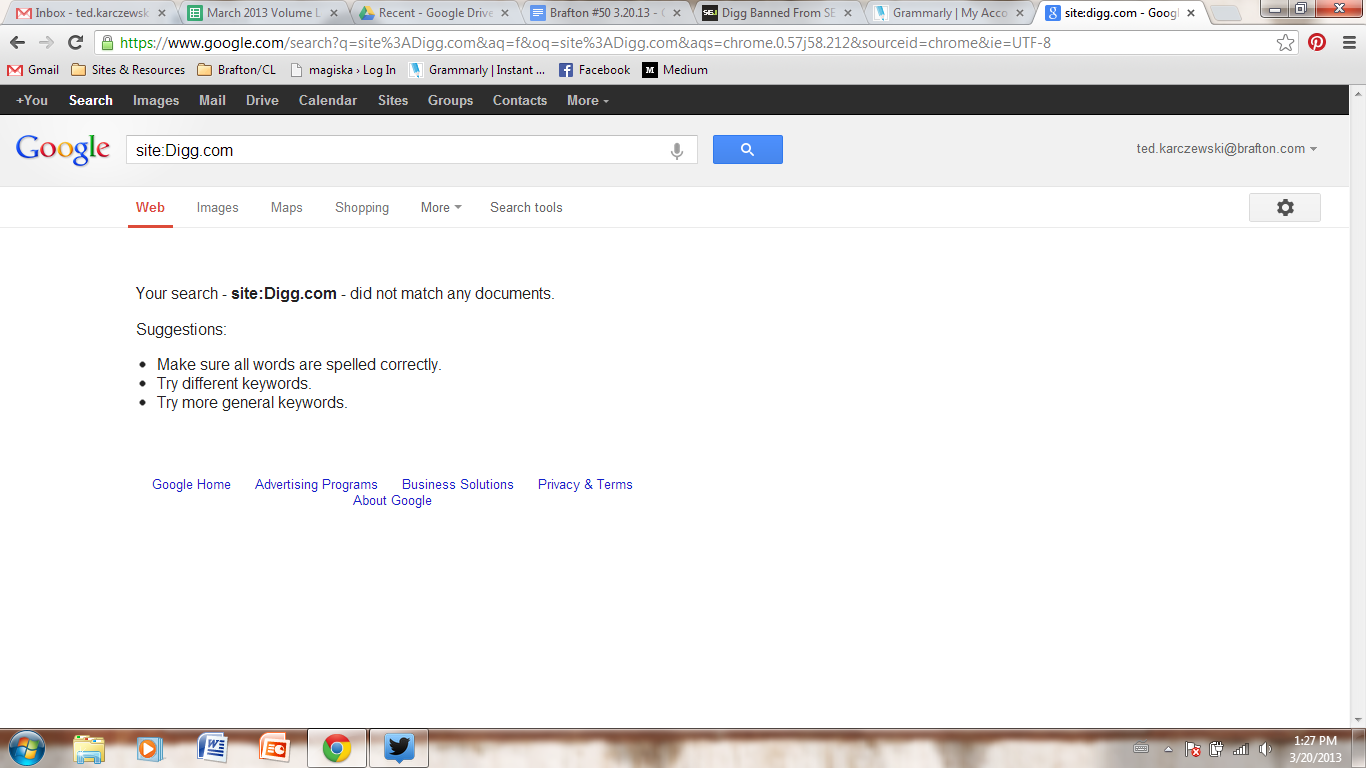At SMX West, Google’s Matt Cutts noted that new versions of Penguin and Panda algorithms would roll out shortly, and Digg might’ve been the animals’ first victim. According to various sources, at press time, if you search for “site:Digg.com” in Google, you will see no results. This means the site has been completely deindexed from Google search.**
Digg could have participated in any number of black hat SEO content practices, such as link buying or selling. More, the website hosts a variety of content, but very few – if any – of the media belongs to Digg. In essence, this company duplicates content and hosts articles on its website. Website content “dug” by the network’s users could still garner referral traffic.
This example shows that Google will not hesitate to apply the same penalties on bigger organizations as it does for small-to medium-sized businesses. Furthermore, it reminds every internet marketing professional to practice white hat SEO and avoid any spammy content-duplication projects. If the Digg penalty is related to duplicate content, it reminds brands SEO rewards go to those publishing original stories with unique value to readers. Digg just announced it would create a replacement for Google Reader, but it seems the company might have bigger problems on its hands after the latest Penguin or Panda crackdown.
**Editor’s note: Google has reported it didn’t intend to eliminate Digg from search results. An action against a single spammy link was mistakenly applied to the whole site. Read more here.




